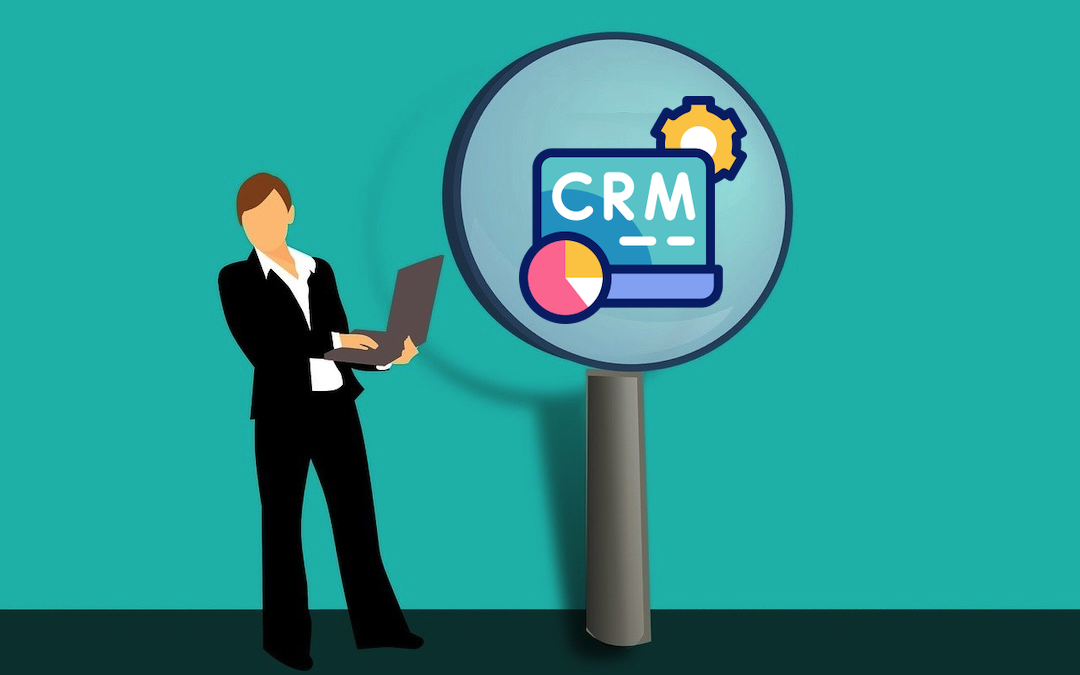
In today’s digital world, Customer Relationship Management (CRM) systems are indispensable for businesses aiming to build strong customer relationships and streamline operations. A CRM developer plays a crucial role in ensuring that these systems function optimally and meet business requirements.
Introduction
CRM systems are more than just tools; they are the backbone of modern business strategies. Whether it’s managing customer data, automating marketing efforts, or providing analytics, a CRM system helps businesses understand their customers' needs and behaviors. A CRM developer, therefore, is key to tailoring these systems to fit specific organizational requirements. But what does it take to be an effective CRM developer?
Understanding CRM Development
CRM development is the process of designing, customizing, and maintaining a CRM system. These developers specialize in building scalable and adaptable solutions that suit the needs of an organization. This often involves customizing CRM software platforms like Salesforce, Microsoft Dynamics, HubSpot, or even building in-house CRM solutions.
To be a proficient CRM developer, you must have a deep understanding of both business processes and technical expertise. It’s not just about knowing how to code but also how to align the CRM’s features with the business’s goals.
In this article, we will dive into the top 5 essential skills that CRM developers should master to excel in their roles and contribute to the success of CRM implementations.

1. Proficiency in CRM Platforms
A CRM developer must be proficient in various CRM platforms and have a solid understanding of their functionality, customizability, and integration capabilities.
Key Platforms to Know:
- Salesforce: The world’s most widely-used CRM platform, known for its scalability and wide range of tools.
- Microsoft Dynamics 365: A popular CRM solution for businesses already invested in Microsoft products, offering Dynamics 365 Business Central, which is tailored for small and medium-sized enterprises.
- HubSpot: An inbound marketing-focused CRM that is gaining popularity due to its ease of use and integration with other marketing tools.
- Zoho CRM: A flexible, cloud-based CRM that offers advanced customization options.
Why Proficiency in CRM Platforms is Essential
Each CRM platform has its own set of strengths and challenges. A CRM developer must not only know the standard functionalities but also understand how to customize and extend the platform to meet specific business needs. For instance:
- Customizing dashboards and reports in Salesforce
- Integrating third-party applications with Microsoft Dynamics
- Developing custom workflows in Zoho CRM
By being well-versed in different CRM platforms, developers can select the best fit for their client’s needs and ensure they are using the right tools for the job.
2. Strong Coding and Programming Knowledge
At the core of CRM development is the ability to write clean, efficient code. Developers need to know how to manipulate data, integrate third-party tools, and build custom CRM solutions.
Programming Languages Every CRM Developer Should Know:
- Apex (for Salesforce): A proprietary programming language (driven from Java) used in Salesforce to customize its platform and implement complex logic.
- JavaScript: Often used for creating interactive features and customizing CRM web interfaces.
- C#: For developers working with Microsoft Dynamics CRM, C# is the primary language for backend customization.
- PHP: For open-source CRM systems like SugarCRM and SuiteCRM, PHP is commonly used.
- SQL: To query and manipulate the CRM’s database, SQL is essential for data management.
Importance of Programming Knowledge
CRM systems are not “one-size-fits-all”. The ability to write custom code allows developers to add unique features and functionalities that meet business-specific requirements. Whether it’s integrating with other software, automating business processes, or building complex reports, strong programming knowledge is a fundamental skill for any CRM developer.
For example, if a business wants to automatically generate follow-up emails based on customer activity in their CRM, a developer can write an Apex trigger in Salesforce or a C# script in Microsoft Dynamics to make this process automated.
3. Database Management and Integration
A CRM is only as good as the data it stores and processes. Effective data management and integration with external systems are essential skills for CRM developer. Managing a CRM database involves not only storing vast amounts of customer data but also ensuring that it’s accurate, secure, and readily available for analysis.
Key Database Management Tasks:
- Database Design: Structuring the database to optimize data storage, accessibility, and reporting.
- Data Integrity: Ensuring that the data stored in the CRM is accurate and free of errors.
- Data Migration: Moving data from one system to another while maintaining its integrity.
Integration with External Systems
CRM systems rarely operate in isolation. Developers must be skilled at integrating CRM with other business systems like ERP (Enterprise Resource Planning) software, marketing automation tools, and customer support platforms.
Integration Challenges
- Handling API (Application Programming Interface) requests for seamless data exchange
- Syncing data in real-time between different platforms
- Ensuring that integrated systems maintain data consistency
CRM developers must understand the architecture of the systems they are integrating and be able to write code to ensure smooth data flow between the platforms.

4. Problem-Solving and Analytical Thinking
CRM developers often face complex problems related to system performance, user experience, and integration issues. Strong problem-solving and analytical thinking are, therefore, critical skills in this field.
How Analytical Thinking Helps CRM Developers
- Identifying bottlenecks: When a CRM system is slow or not responding correctly, a CRM developer uses analytical skills to identify performance bottlenecks and optimize the system.
- Debugging issues: Debugging requires keen attention to detail to pinpoint the source of an issue and determine how best to fix it.
- Creating efficient workflows: Analyzing business processes and developing workflows that automate tasks, improve efficiency, and reduce errors.
CRM development isn’t just about writing code; it’s about finding creative solutions to challenges. For instance, if a client reports slow performance in a CRM, a CRM developer must diagnose the issue and resolve it—whether it’s optimizing database queries, improving the user interface, or adjusting server settings.
5: Effective Communication and Collaboration
While technical expertise is crucial, CRM developers must also excel at communication. They work closely with other developers, project managers, business analysts, and end-users to ensure that the CRM system meets the client’s needs.
Key Aspects of Communication in CRM Development:
- Listening to Client Requirements: Developers must understand the specific business needs and translate them into technical specifications.
- Clear Documentation: Writing clear, detailed documentation helps the development team understand how the CRM was customized and how it functions.
- Team Collaboration: CRM development often involves working in teams. Developers need to collaborate effectively with other team members, including front-end developers, back-end developers, and business analysts.
- Training End-Users: Developers may be called upon to provide training to end-users on how to make the most of the CRM system.
Effective communication ensures that CRM projects stay on track, meet business goals, and ultimately drive success for the organization.
The Role of CRM Developers in Customizing Solutions
One of the primary tasks of a CRM developer is to customize solutions based on a company’s specific needs. This includes integrating the CRM system with other tools, building custom modules, and adapting workflows to improve operational efficiency.
Customization Examples:
- Custom Dashboards: Creating personalized dashboards that provide key performance indicators (KPIs) to different teams.
- Automated Workflows: Developing automated processes that trigger actions based on certain customer behaviors.
- Third-Party Integration: Integrating with email marketing tools, customer support systems, or social media platforms to provide a 360-degree view of customer interactions.
By tailoring CRM systems to meet a business’s requirements, CRM developers contribute directly to increasing productivity, improving customer satisfaction, and driving sales.
Emerging Trends in CRM Development
The CRM development landscape is continuously evolving. Developers need to stay up-to-date with the latest trends and technologies to remain competitive. Some of the most significant trends include:
- Artificial Intelligence (AI) Integration: AI-powered CRM systems can analyze customer data, provide personalized experiences, and automate routine tasks.
- Cloud-Based CRM: More businesses are migrating to cloud-based CRM platforms, offering better scalability, security, and accessibility.
- Mobile CRM: As businesses become more mobile, CRM systems must be accessible from smartphones and tablets.
CRM developers must stay abreast of these trends and adapt their skill sets accordingly to keep up with the rapidly changing technology.
Conclusion
CRM development requires a diverse set of skills ranging from platform proficiency to problem-solving and communication. As CRM systems continue to evolve, the role of the CRM developer will become even more critical. By mastering these five essential skills—proficiency in CRM platforms, strong coding knowledge, database management, problem-solving, and effective communication—CRM developers can ensure that businesses fully leverage their CRM systems for improved customer relationships and business growth.
By staying on top of technological advances and constantly refining their skills, CRM developers can remain an invaluable asset to any organization seeking to optimize their CRM solutions.
Share this post
Leave a comment
All comments are moderated. Spammy and bot submitted comments are deleted. Please submit the comments that are helpful to others, and we'll approve your comments. A comment that includes outbound link will only be approved if the content is relevant to the topic, and has some value to our readers.

Comments (0)
No comment